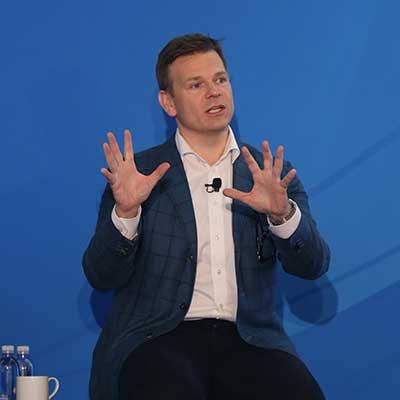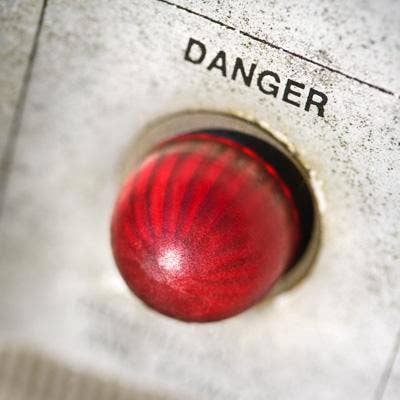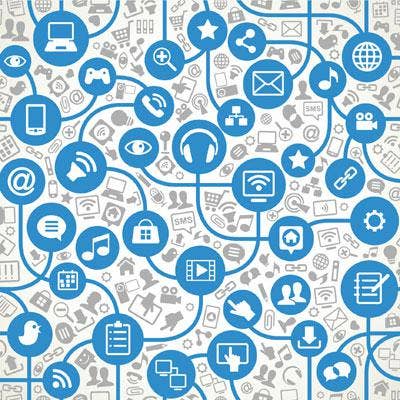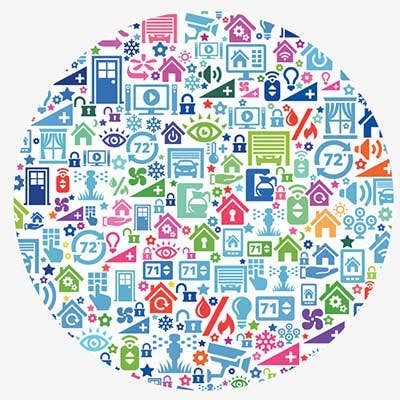The Network Must Get Smarter: 8 Ways Cisco Aims To Conquer The IoT Market

The Biggest Opportunity In 20 Years
"The internet as we know it today and the network that you operate will not work for the Internet of Things," said Cisco's IoT leader Rowan Trollope to thousands of channel partners at the recent Cisco Partner Summit 2016 in San Francisco.
But here's the good news for Cisco channel partners, as Trollope sees it: "We can solve that problem because we own the network. So we don't have the challenge Microsoft has or that GE has or that all these other companies that don't own a network [have]," said Trollope, senior vice president and general manager for Cisco's IoT and Applications business.
The San Jose, Calif.-based networking giant is planning to leverage its networking footprint to dominate the IoT market by forming deep technology partnerships with every type of IoT device manufacturer while tackling the operational technology space as the channel leads the way with crucial IoT services.
"This is the biggest thing, in my opinion, to happen to Cisco's business probably in 20 years," said Trollope.

The Network Is 'Broken' For IoT, And No One Can Fix It But Cisco
IoT can't function properly on current network infrastructure, and the technology on top of the network is making everything too complex, said Trollope. Other vendors and IoT competitors simply cannot solve the complexity of IoT because they can only create solutions on top of the network, he said.
"Every vendor in the world, what they're trying to do is solve a problem that is essentially impossible to solve. You can't build on top of something that is fundamentally broken. So what they try to do is layer complexity on top of the network, and the reason why they do that is because they can't change the network," said Trollope.
"But here's the great news. We can solve that problem because we own the network. So we don't have the challenge Microsoft has or that GE has or that all these other companies that don't own a network [have]. … We can change the network," said Trollope.

Make The Network Smarter For IoT
As bandwidth and connectivity needs continue to grow with more mobile devices and "things" coming online, the network must get smarter. With a focus around automation, software and new technology such as its Digital Network Architecture (DNA) -- along with a market-leading $22 billion network hardware business -- Cisco will lead the way in the intelligent network era, Trollope said.
"[We'll] evolve the network to build in automation and a deep understanding of IoT devices," said Trollope.

Tie IoT Devices Directly To Cisco To 'Operate As One'
The networking giant is now making a significant effort to directly intertwine Cisco infrastructure with any IoT device, working hand in hand with operational technology companies.
"We're actually going to need to talk to the device makers and give them a set of tools and APIs and some code, some certificates, to allow them to participate in the network so that the network and the 'thing' can operate as one," said Trollope. "When you evolve for this next-generation network, we have to involve the 'things' makers, the device makers – the people who make cameras, people who make all this other stuff and in order to involve them, we have to get their participation."
The networking giant is building a Certified Device Program where any type of IoT device that wants to become connected to the Cisco network will need to become Cisco certified.
"So we're going to set a set of rules and the device certification program to allow any vendor to bring their devices onto the network in a way that we can understand what they are," said Trollope.

'Rebooting The Security Equation' For IoT
Integrating IoT devices directly with Cisco networks can solve security issues surrounding IoT. Trollope, who spent more than 20 years at security powerhouse Symantec before joining Cisco in 2012, said the security model in place today was built for "general-purpose computers" not for "specific-purpose 'things.' "
"Part of our device certification program is to say, 'You must tell us what traffic is valid from your device.' That information must become inherent in the network, provided to the network. When you do that as a device maker, it allows us to automate the network infrastructure. It allows us to reach back and pre-configure the network. We want no steps. I'm focused on simplicity," said Trollope. "When it turns on, it connects to the network, the network understands which device it is and automatically sets those policies and … we don't want that device to do anything but talk to its own website or control service. … We're rebooting the security equation for the Internet of Things."

Go After Operational Technology Companies With New IoT Services
The opportunity for channel partners to start selling IoT services to operational technology companies "is the biggest thing to happen to Cisco's businesses probably in 20 years," said Trollope. "It's a massive transformation and a massive business opportunity that's emerging and is going to be massive over time."
Cisco wants its partners to start hunting for services opportunities in new operational technology markets. "All the additional capabilities we can give to the 'thing' maker that they really, really need – that's a huge new customer and a new opportunity for [partners]," said Trollope.
Research firm Gartner predicts IoT will support total services spending of $235 billion in 2016, up 22 percent from 2015. "IoT services are the real driver of value in IoT," said Gartner analyst Jim Tully in a statement.

Cisco Internal Organizations To Help Drive Operational Technology Sales
Cisco has created internal organizations -- such as its Industries Product Group and Digital Transformation Practice – tasked with building and customizing Cisco technologies for specific vertical industries in an effort to make it easier for partners to sell into operational technology companies.
"When you sell a technology platform to IT, it's a homologous buyer – they get it, they largely look the same and speak the same language. But when you speak to an [operational technology] buyer, it's very different. You can't talk the same way to a guy who makes cars the same way you talk to someone who makes [IT]. We need to speak to them all very, very differently," said Trollope. "That's why we doubled down on our Industries Product Group."

Customized Offers Available Right Now
Cisco's internal groups already have built IoT technology bundles that partners can now sell geared toward specific industries such as manufacturing, transportation and cities.
"We already have a bunch of offers that is essentially taking [our Cisco Jasper] technology platform, or pieces of it, bundling it up for individual industries and then doing some customization, some certifications and then taking it to those [operational technology] customers. And ultimately, we're having a conversation about a business outcome. So it's about delivering our core technology, but doing it in a way that is relevant to the customer who you're talking too," said Trollope.

IoT Cloud Starts With Jasper
Cisco acquired IoT specialist Jasper Technologies for $1.4 billion in February. Jasper provides a cloud-based IoT service platform that helps enterprise and service providers launch, manage and monetize IoT services on a massive scale. Trollope said it currently has 6,700 line-of-business customers "and there's many more who [partners] talk to on a daily basis."
"That IoT cloud starts with Jasper and is being extended to all of the other networking types that Cisco has today … which means that anywhere in the world you will power up a Cisco certified IoT device and it will connect automatically to the next generation DNA-powered network and authenticate the device on the network and set up the traffic flows with a few clicks," said Trollope.

Cisco's IoT Strategy Recap
There are three main pillars to Cisco's strategy: evolve the network to better enable IoT devices; create new businesses and engagement with IoT device makers; and tackle the operational technology market with customized IoT solutions and services.
Instead of just talking to IT, partners need to get to know operational technology buyers as well, according to Trollope.
"We already have offers in manufacturing like Zero Downtime [and] connected asset manager. We already have offers for cities, like the City Digitals Platform – we have a bunch of these things today. It's critical that you learn about these because it's moving really, really quickly. We need [partners] to get on board and engage with us."